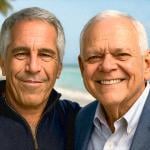Via Cursor, I finally got to read Joshua Green's long Atlantic Monthly article on ethically challenged political strategist Karl Rove. Peking Duck offers a cache of the full article here.
Green notes Rove's political smarts and fierce attention to detail, but shows how Rove's greatest asset as a win-at-any-cost political hired gun is his "a willingness to fight in territory where conscience forbids most others." A few examples:
The fake attack on your own candidate
According to someone who worked for him, Rove, dissatisfied with the campaign's progress, had flyers printed up — absent any trace of who was behind them — viciously attacking [Rove's own candidate] See and his family. "We were trying to craft a message to reach some of the blue-collar, lower-middle-class people," the staffer says. "You'd roll it up, put a rubber band around it, and paperboy it at houses late at night. I was told, 'Do not hand it to anybody, do not tell anybody who you're with, and if you can, borrow a car that doesn't have your tags.' So I borrowed a buddy's car [and drove] down the middle of the street … I had Hefty bags stuffed full of these rolled-up pamphlets, and I'd cruise the designated neighborhoods, throwing these things out with both hands and literally driving with my knees." The ploy left Rove's opponent at a loss. Ingram's staff realized that it would be fruitless to try to persuade the public that the See campaign was attacking its own candidate in order "to create a backlash against the Democrat," as Joe Perkins, who worked for Ingram, put it to me. Presumably the public would believe that Democrats were spreading terrible rumors about See and his family.
The ugly "whisper" campaign, Example 1
One constant throughout his career is the prevalence of whisper campaigns against opponents. The 2000 primary campaign, for example, featured a widely disseminated rumor that John McCain, tortured as a prisoner of war in Vietnam, had betrayed his country under interrogation and been rendered mentally unfit for office.
UWC, Example 2
But no other example of Rove's extreme tactics that I encountered quite compares to what occurred during another 1994 judicial campaign in Alabama. In that year Harold See first ran for the supreme court, becoming the rare Rove client to lose a close race. His opponent, Mark Kennedy, an incumbent Democratic justice and, as George Wallace's son-in-law, a member in good standing of Alabama's first family of politics, was no stranger to hardball politics. …
Kennedy had spent years on the bench as a juvenile and family-court judge, during which time he had developed a strong interest in aiding abused children. In the early 1980s he had helped to start the Children's Trust Fund of Alabama, and he later established the Corporate Foundation for Children, a private, nonprofit organization. At the time of the race he had just served a term as president of the National Committee to Prevent Child Abuse and Neglect. One of Rove's signature tactics is to attack an opponent on the very front that seems unassailable. Kennedy was no exception.
Some of Kennedy's campaign commercials touted his volunteer work, including one that showed him holding hands with children. "We were trying to counter the positives from that ad," a former Rove staffer told me, explaining that some within the See camp initiated a whisper campaign that Kennedy was a pedophile. "It was our standard practice to use the University of Alabama Law School to disseminate whisper-campaign information," the staffer went on. "That was a major device we used for the transmission of this stuff. The students at the law school are from all over the state, and that's one of the ways that Karl got the information out — he knew the law students would take it back to their home towns and it would get out." This would create the impression that the lie was in fact common knowledge across the state. "What Rove does," says Joe Perkins, "is try to make something so bad for a family that the candidate will not subject the family to the hardship."
After talking with many of Rove's past and present colleagues, his former clients and their opponents, Green says that one of his "overriding impressions" was "astonishment at the degree to which, despite all that's been written about him, Rove's fiercest tendencies have been elided in national media coverage."
But Green himself "elides" some of the personal history of Karl Rove that might help the public to better understand this powerful presidential adviser. Green provides no new insight, for example, into Rove's reputed aesthetic tastes in "artistic" photography. (Nor does he help us to understand how someone as intelligent as Rove, by all accounts, is, could think that simply deleting such photographs would remove all trace of them from his hard drive.)












